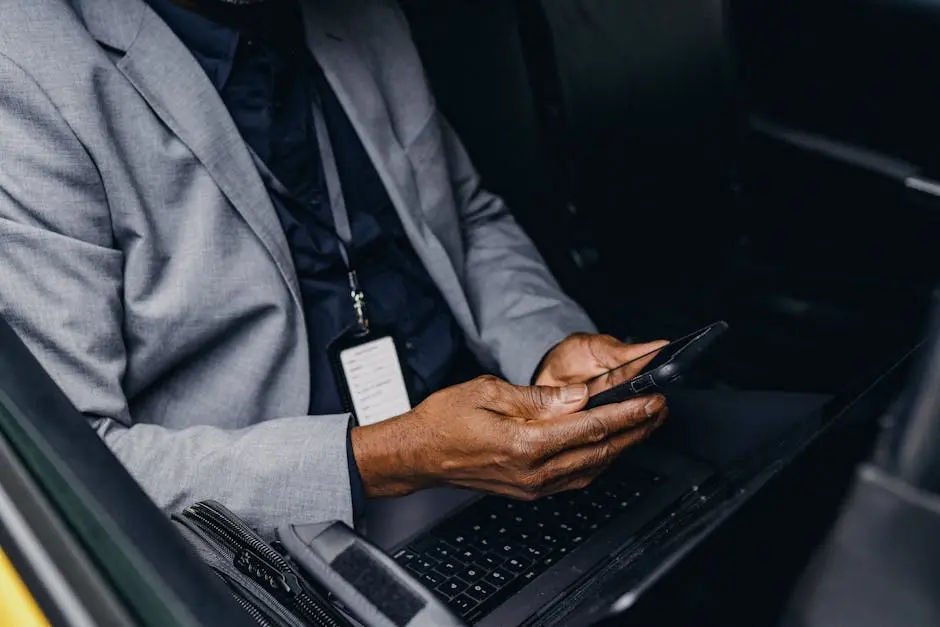15 Travel Etiquette Tips for Business Trips to Make a Great Impression
When it comes to business travel, making a great impression is crucial. Understanding travel etiquette can help you navigate social situations and foster positive relationships with colleagues and clients alike. Whether you're jetting off to a conference or meeting a client for the first time, these tips will guide you on how to conduct yourself with professionalism and charm.
1. Research Cultural Norms Beforehand
Before you embark on your journey, it's essential to understand the cultural norms of your destination. Different countries have unique customs and practices that may influence business interactions. For instance, in Japan, bowing is a common greeting, while in many Western cultures, a firm handshake is preferred. Familiarizing yourself with these nuances can prevent awkward situations and demonstrate your respect for local traditions.
Additionally, consider aspects like dress codes, dining etiquette, and gift-giving customs. Researching these details not only prepares you for the trip but also enhances your confidence when you engage with locals. Using resources like travel blogs, cultural etiquette websites, and even YouTube videos can provide valuable insights that make your interactions smoother and more pleasant.
2. Dress Appropriately for Your Destination
Your attire speaks volumes about your professionalism, so choose your outfits wisely. Dressing appropriately for your destination can significantly influence first impressions. For example, in a casual environment like Silicon Valley, a business casual look may suffice, but in more formal settings, such as corporate offices in New York City, a suit is often expected.
Also, think about the climate and local fashion trends. Wearing materials suitable for the weather not only keeps you comfortable but shows that you’ve made an effort to adapt to your surroundings. Furthermore, ensuring your clothes are clean and pressed reinforces your attention to detail, an essential trait in any business interaction.
3. Practice Politeness with Greetings
Greeting someone for the first time can set the tone for your entire meeting, making personal politeness extremely important. Start by smiling and making eye contact to convey openness and interest. Remember that different cultures have various approaches to greetings; for instance, while a handshake is universal, some cultures may prefer a kiss on the cheek or even a bow.
A warm, respectful greeting shows that you value the other person, paving the way for more productive interactions. Don’t hesitate to use titles such as 'Mr.', 'Ms.', or 'Dr.' unless you’re invited to use first names; this demonstrates respect and professionalism that can be greatly appreciated.
4. Be Punctual and Respect Time
Time is money in the business world, and showing up late can make a poor impression. Arriving punctually not only reflects your professionalism but also your respect for others’ schedules. To avoid being late, plan ahead and allocate extra time for unforeseen occurrences, such as traffic or delays.
Moreover, when engaging with international partners, it's prudent to be aware that perceptions of punctuality can vary by culture. In some countries, such as Germany, punctuality is a sign of reliability, while in others, a more relaxed approach might be acceptable. Regardless, communicating any delays can help maintain trust and showcase your commitment to the collaboration.
5. Mind Your Table Manners During Meals
Business meals are often high-stakes environments where etiquette is paramount. Familiarize yourself with basic table manners, such as which utensils to use for each course and how to handle napkins. Additionally, avoiding topics like politics or religion during dining can help keep conversations light and enjoyable.
Furthermore, be courteous to the wait staff, as their services contribute to a pleasant dining experience. Small gestures, like saying 'please' and 'thank you', can elevate your professionalism and create a positive atmosphere. Remember, your conduct at the table reveals not just your social awareness but also your character.
6. Keep Your Phone on Silent
In the age of technology, maintaining focus during meetings is crucial. Keeping your phone on silent or vibrate mode shows respect for the time and effort of those you're meeting with. Constant notifications and interruptions can be distracting, undermining the flow of conversation, and can leave a negative impression.
If you must take an important call, excuse yourself discreetly to minimize disruption. It’s best to plan your check-ins during breaks or after your scheduled interactions. This mindfulness towards your surroundings emphasizes your professionalism and dedication to building relationships.
7. Be Cautious with Humor
Humor can be a double-edged sword in a business setting. While a well-timed joke can ease tension and foster camaraderie, misjudged humor, especially if it touches on sensitive topics or might be culturally inappropriate, can easily backfire. Therefore, it's best to err on the side of caution, especially in unfamiliar environments.
On the other hand, understanding local humor can be beneficial. Comedians often draw on cultural specifics, so doing a bit of homework can help you navigate light-hearted conversations with more confidence. Ultimately, adjust your humor to fit the context and audience, ensuring that it enhances rather than detracts from your professionalism.
8. Exchange Business Cards Thoughtfully
The exchange of business cards is a time-honored tradition in many cultures, serving as a tangible representation of your identity and professionalism. When handing over your card, do so with both hands, with the text facing the recipient. This simple act conveys respect and attentiveness.
Moreover, upon receiving a business card, take a moment to study it before putting it away. This shows that you value the information and the person behind it. In some cultures, like Japan, neglecting this practice is seen as rude, so being mindful of cultural differences in this exchange is critical for successful networking.
9. Communicate Clearly and Professionally
Articulating your thoughts clearly is an invaluable skill in business travel. Practice concise communication, focusing on key points to convey your message effectively. Avoid jargon that may confuse your audience, especially when interacting with colleagues from different backgrounds.
In addition, active listening plays a crucial role in effective communication. Being attentive to what others say not only ensures you understand their perspective but also demonstrates respect towards their ideas. This two-way interaction can strengthen your relationships and foster collaboration.
10. Respect Personal Space and Boundaries
Understanding personal space is vital during business interactions. People have varying comfort levels regarding physical proximity, which can differ greatly across cultures. Being attentive and observing nonverbal cues can guide you in respecting boundaries and making others feel at ease.
Also, be careful with touch. While a handshake may be standard in many parts of the world, some cultures may find it intrusive or inappropriate. Ensuring you’re aware of these differences can help facilitate smoother interactions and prevent any accidental discomfort.
11. Be Mindful of Local Customs and Traditions
Every country has its unique set of customs and traditions that shape social interactions. Being acquainted with these practices can significantly enhance your travels. For example, in some cultures, it’s customary to remove your shoes before entering a home, while others have specific dining practices like not finishing all the food on your plate to avoid offending your host.
Demonstrating a willingness to embrace local customs reflects not only your cultural sensitivity but also your openness to broaden your horizons. Taking time to learn and engage in these traditions can contribute positively to your image and rapport with international colleagues.
12. Express Gratitude After Meetings
Following up with a thank-you note after meetings is a small yet profound gesture. It reinforces politeness and shows genuine appreciation for the time and effort invested by your colleagues or clients. A handwritten note can leave an even more significant impact than an email, highlighting your commitment to maintaining the relationship.
Additionally, expressing gratitude can encourage future opportunities. A simple acknowledgment of someone’s assistance makes them feel valued, fostering goodwill that may come in handy down the line. Remember, building strong relationships is a continuous process, and small acts of kindness can have lasting effects.
13. Avoid Sensitive Topics in Conversation
While it can be tempting to delve into deeper conversations, steering clear of sensitive topics like religion, politics, or personal finances is crucial in business settings. These discussions can quickly lead to disagreements or discomfort, detracting from the purpose of your interaction.
Instead, focus on neutral topics such as industry news or mutual interests. Engaging in lighthearted conversations fosters a friendly atmosphere and can help you forge stronger connections with your colleagues or clients. Keeping these interactions positive lays the groundwork for productive professional relationships.
14. Stay Professional on Social Media
Your online presence is often the first impression you give before any in-person meeting. Maintaining professionalism on social media platforms is essential, particularly those like LinkedIn that are tailored for professional networking. Ensure your profiles are up-to-date, reflect positively on your personal brand, and follow appropriate etiquette.
Be mindful of the content you share; steer clear of controversial opinions or inflammatory posts that could tarnish your reputation. Instead, aim to share valuable insights or resources pertinent to your industry. Engaging with others respectfully will project the image of a professional who understands the importance of maintaining image both online and offline.
15. Reflect on Your Experiences After Travel
Post-travel reflection can be a valuable practice for continuous improvement. Consider what went well during your business interactions and identify areas for growth. Were there moments when you felt particularly successful in making connections, or were there times when you could have communicated more effectively?
Taking time to analyze these experiences allows you to adapt your approach for future travels, helping you become a more effective and culturally sensitive communicator. Moreover, this reflective practice becomes a part of your professional development, gradually enhancing your ability to navigate diverse environments with ease.

